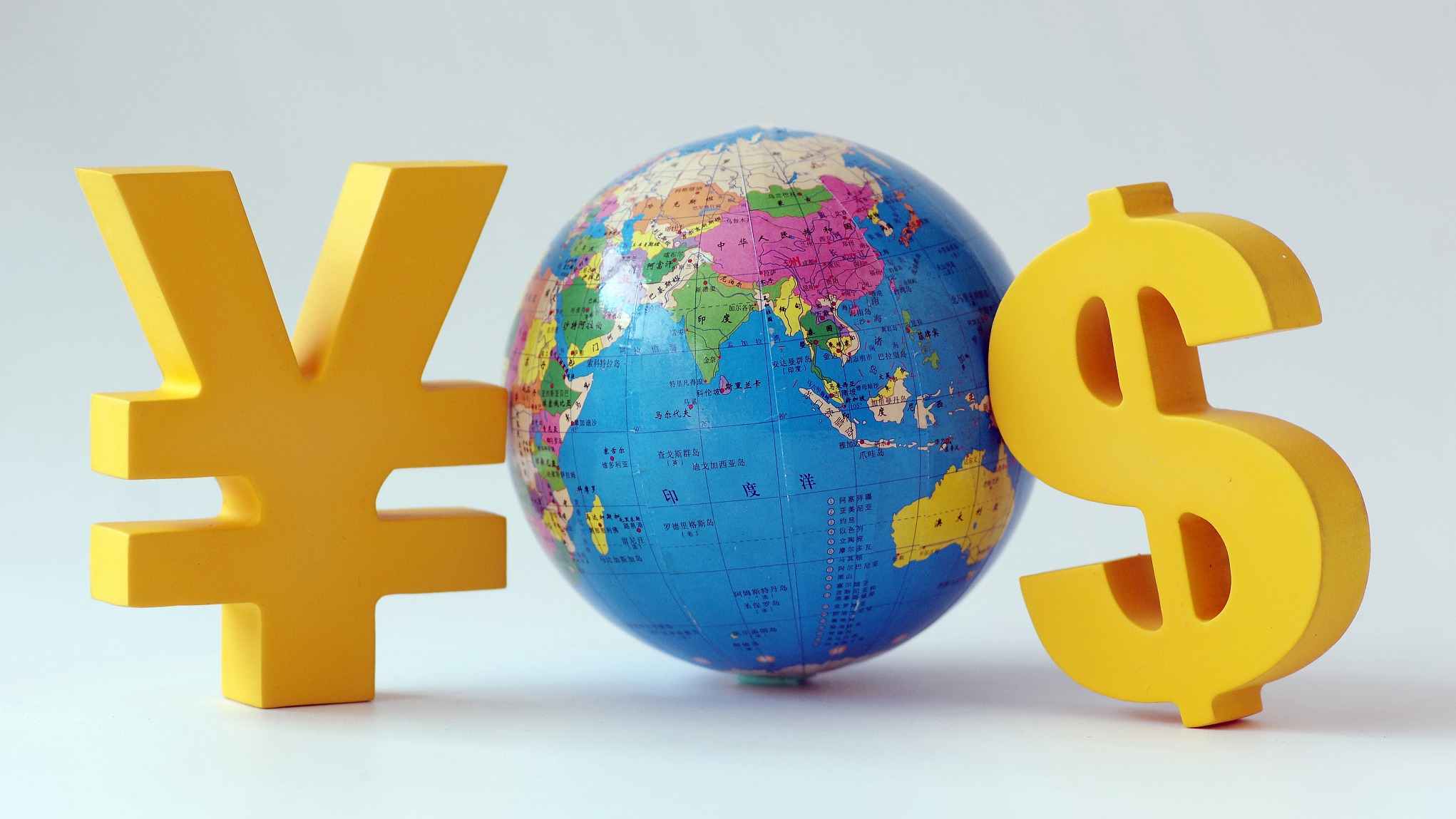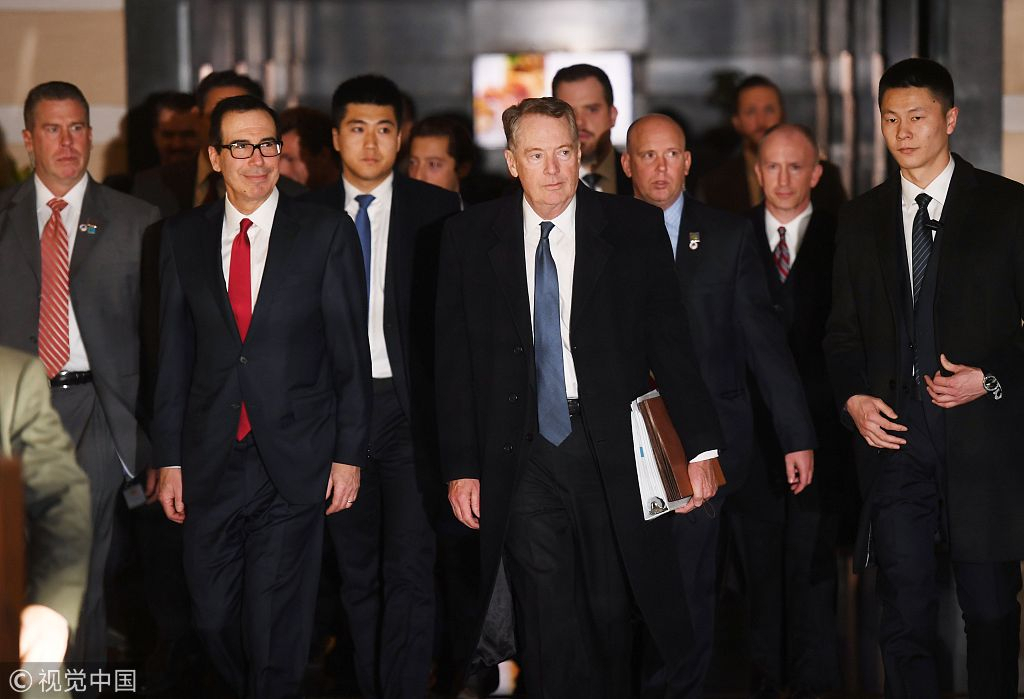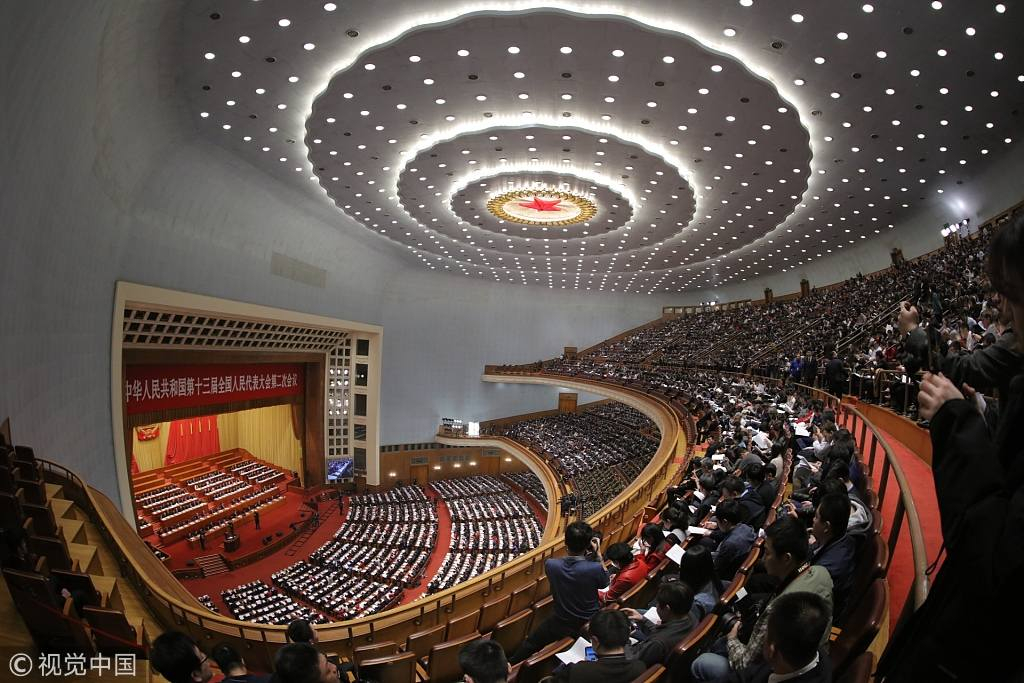
Opinion
11:13, 08-Mar-2019
Reshaping China-U.S. relations needs fresh thoughts
Sun Chenghao

Editor's note: Sun Chenghao is an assistant research professor at the Institute of American Studies of the China Institutes of Contemporary International Relations. The article reflects the author's views, and not necessarily those of CGTN.
Chinese State Councilor and Foreign Minister Wang Yi stressed the importance of China-U.S. cooperation when answering a question regarding Sino-U.S. relations on the sideline of the second session of the 13th National People's Congress in Beijing on Friday.
Wang stated that competition between China and the U.S. is normal in the process of development, but the key is to put things into a larger perspective. Wang urged the U.S. to abandon the zero-sum mentality and called the two sides to have a healthy competition in the process of deepening cooperation.
Since Donald Trump became the U.S. president, China-U.S. relations have experienced a series of turbulences, standing at an inflection point in history.
In the past decades, China has seen rapid growth in every socioeconomic sector, but in the eyes of the American elites, it poses one of the gravest imminent threats to U.S. supremacy.
Labels and narratives like "strategic competition," "Thucydides Trap" and "decoupling of Chimerica" have been widely disseminated in the U.S. strategic circle.

Corn grows on a farm near Amana, Iowa, July 13, 2018. Farmers in the U.S., who are already faced with decade-low profits, are bracing for the impact a trade war with China may have on their bottom line going forward. /VCG Photo
Corn grows on a farm near Amana, Iowa, July 13, 2018. Farmers in the U.S., who are already faced with decade-low profits, are bracing for the impact a trade war with China may have on their bottom line going forward. /VCG Photo
It seems the U.S. is using the negative narrative to describe the bilateral relationship, believing the assumption of the U.S.' China strategy in the past 40 years, namely changing China by engagement, has failed, based on the three major misperceptions of China.
In short, the U.S. believes China is dismissing U.S. power, discrediting U.S. democracy and dismantling U.S.-led international order.
When people start to debate whether China and the U.S. have already entered into a "new Cold War," the latest developments of the trade negotiations will provide more confidence for the bilateral relationship and a new window of opportunity to think fresh and big.
However, considering that Trump has entered another period of campaigning for the 2020 U.S. presidential election, the U.S. should prevent the relations from being hijacked by its domestic politics.
With the House controlled by Democrats, the bar for supporting the new trade deals or any other deals reached by the U.S. and other countries would be higher.
For instance, the U.S.-Mexico-Canada Agreement must be approved by Congress before it can take effect, but with a majority, the Democrats could possibly scuttle the deal.

U.S. Treasury Secretary Steven Mnuchin (front L) and U.S. Trade Representative Robert Lighthizer (front R) leave a hotel on the way to trade talks in Beijing, February 15, 2019. /VCG Photo.
U.S. Treasury Secretary Steven Mnuchin (front L) and U.S. Trade Representative Robert Lighthizer (front R) leave a hotel on the way to trade talks in Beijing, February 15, 2019. /VCG Photo.
What we witnessed at the recent Hanoi Summit was that Trump simply walked away without signing any agreement with the DPRK, mainly because of U.S. domestic politics.
Almost at the same time, Michael Cohen was giving testimony about Trump to Congress, making Trump more nervous and cautious about the possible domestic reactions to his deal with the DPRK.
As for the trade deal with China, although U.S. Trade Representative Lighthizer testified before Congress that the president had the constitutional authority to resolve trade disputes under a 1974 trade act and would not seek congressional approval for a China deal, the Democrats could still add uncertainties to the trade relations even after the deal is reached.
For instance, the Democrats would call the deal a failure by criticizing Trump's concessions to China for not pressuring the country to promise more structural changes. The Democrats are also concerned that Trump is eager to reach a deal with China for his own political agenda and his business friends in Wall Street instead of the American interest. The denunciations will, in turn, be used by Trump as an excuse to pressure China to concede more or expand tariffs on Chinese goods.

The second session of the 13th National People's Congress opens in Beijing, March 5, 2019. /VCG Photo
The second session of the 13th National People's Congress opens in Beijing, March 5, 2019. /VCG Photo
More importantly, for an established power and a rising nation to co-exist in peace, the U.S. should drop American exceptionalism and reduce its suspicions. The current Beijing-Washington ties are too sophisticated to be defined as a new Cold War. And the two countries need new thoughts to reshape the bilateral relationship.
China is not ancient Athens and the U.S. is not Sparta. Friction is inevitable for two powers that both lack the experience to deal with such a structural challenge. For the U.S., it must be wise enough to embrace and accommodate China's development; for China, it must learn how to help the U.S. dispel misunderstandings and misperceptions.
It is possibly a painful process for discovering a new paradigm to deal with the bilateral relationship. Some established principles are still useful to navigate the course. But both countries should step out of their comfort zones and think about how to formulate a new strategic framework on stabilizing the relationship and consider a more practical way to focus on cooperation rather than competition.
(If you want to contribute and have specific expertise, please contact us at opinions@cgtn.com.)

SITEMAP
Copyright © 2018 CGTN. Beijing ICP prepared NO.16065310-3
Copyright © 2018 CGTN. Beijing ICP prepared NO.16065310-3